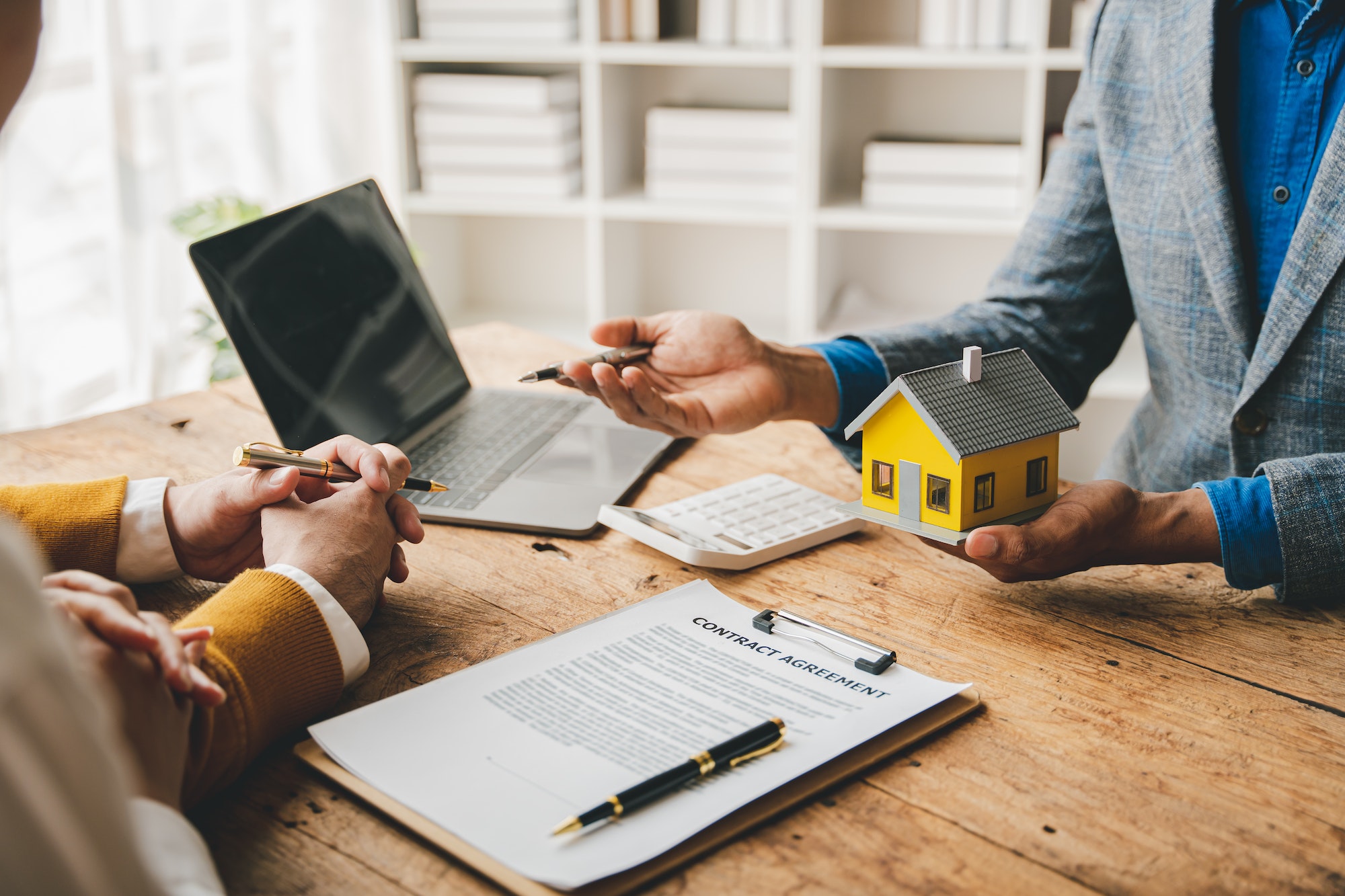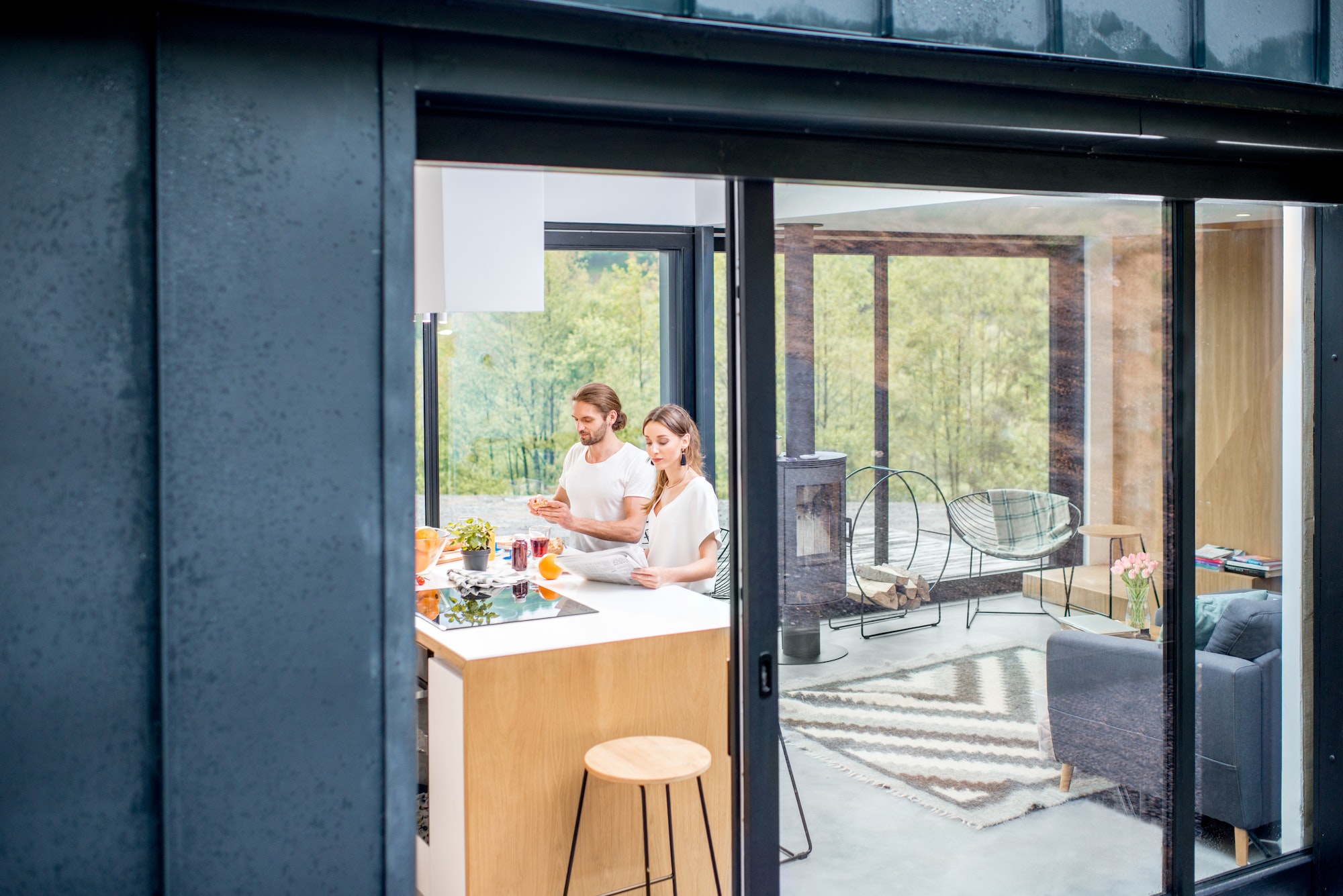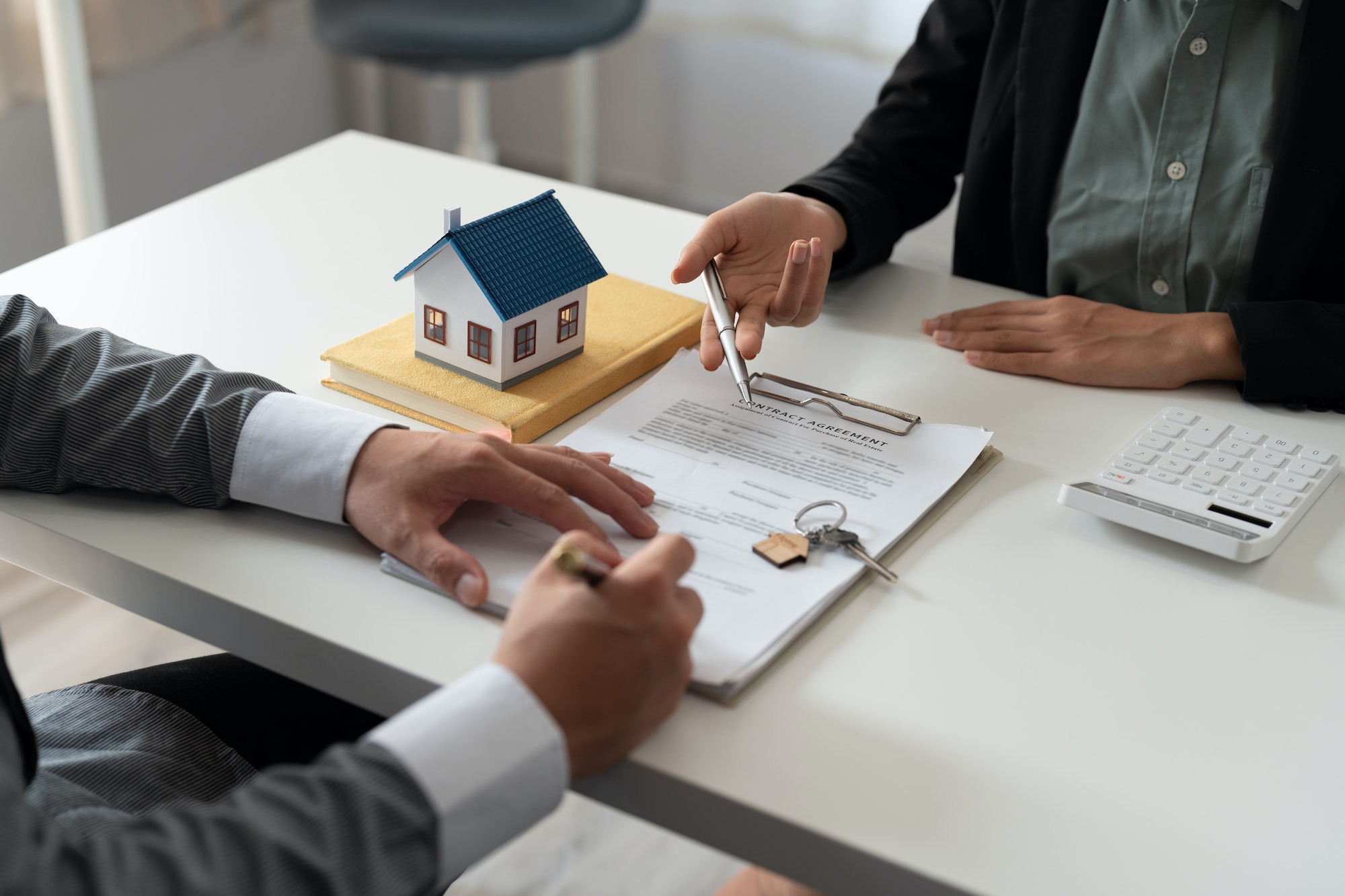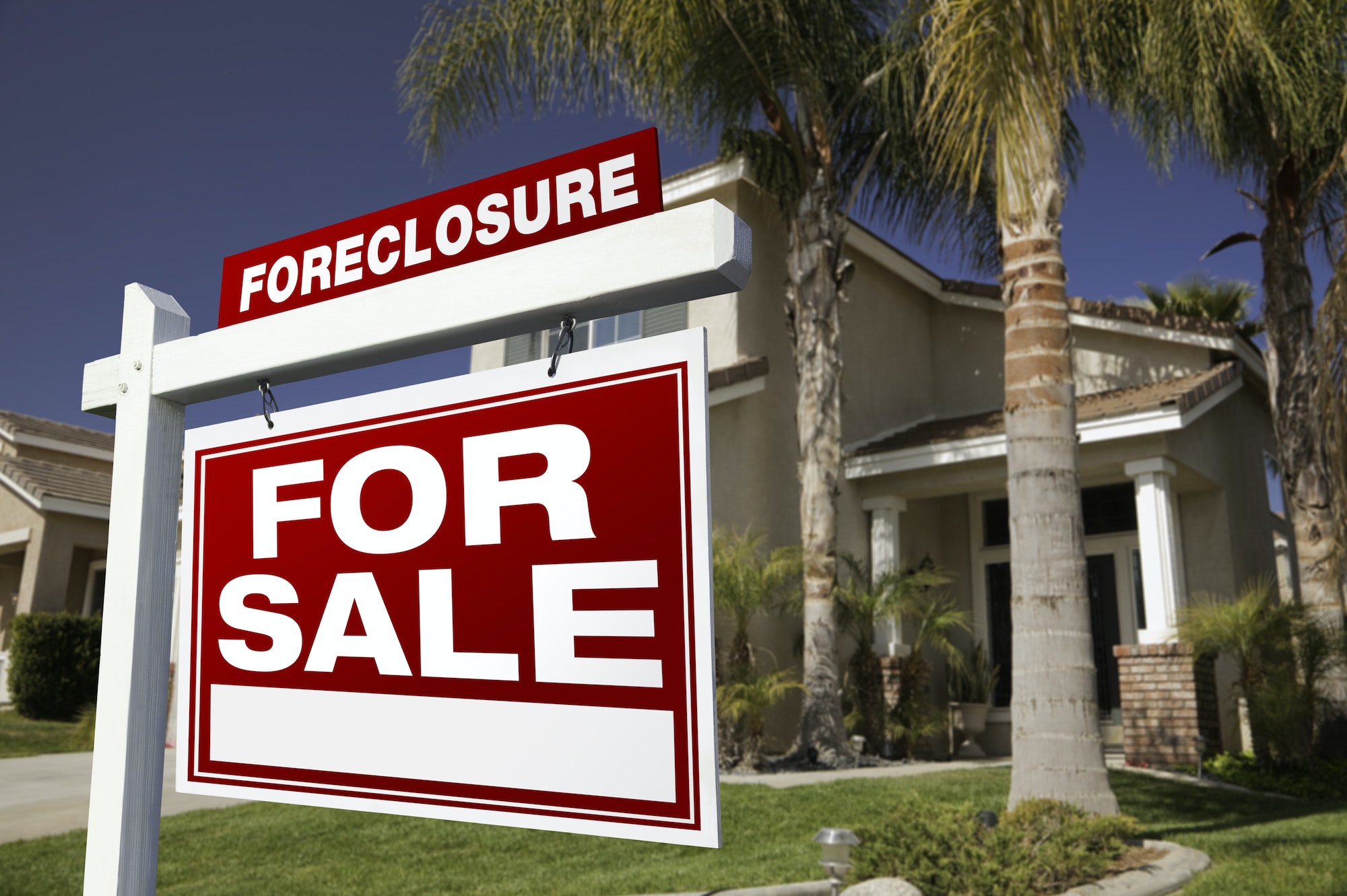Owning a home is often regarded as the ultimate American dream, but is it always the best move? More people are starting to question this traditional pathway and for a good reason. When considering the merits of leasing a house instead of buying one, several factors tip the scales in favor of leasing. Let’s explore these compelling reasons and why they might be ideal for your lifestyle.
The housing market is a complex realm, where prices can skyrocket or plummet with little warning. In 2021, the median home value in the U.S. hit approximately $303,000, a steep increase of 17.7% from the previous year. This volatility can be daunting for potential homeowners, making leasing an appealing alternative. With leasing, you sidestep the risks associated with such market fluctuations, allowing you to live with less financial stress.
On the flip side, the average monthly rent in the U.S. in 2021 hovered around $1,500. Although this seems like a hefty sum, renters enjoy significant financial freedom that homeowners often lack. From avoiding substantial down payments to sidestepping maintenance costs and property taxes, leasing can offer a less burdensome financial commitment, especially in the short term.
But the advantages of leasing extend beyond mere financial aspects. It also brings unparalleled flexibility, a boon in today’s mobile world. If a new job opportunity arises across the country or if you simply fancy a change of scenery, as a renter, you are free to pack up and move with far less hassle than if you were tied down to a mortgage.
Table of Contents
Why Leasing a House Beats Buying: The Top 7 Reasons
1. No Massive Down Payment
When you decide to buy a home, one of the first hurdles you’ll encounter is the down payment. This is the initial upfront portion that you pay on a home purchase. Most lenders typically require a down payment of 20% of the home’s purchase price. So, for instance, if you were purchasing a home valued at $300,000, you’d need to come up with $60,000 for the down payment alone.
This large sum of money can be a significant financial barrier for many potential homeowners. It might take years to save up enough money to meet the down payment requirements, and this doesn’t even factor in the additional costs that come with buying a home, such as closing costs, home inspections, and moving expenses.
On the other hand, when you lease a house, the upfront costs are typically much lower. You may need to provide the first and last month’s rent and a security deposit. For example, if your monthly rent is $1,500, you might need $4,500 upfront (first month, last month, and a security deposit of $1,500). This is significantly less than what you would need for a down payment on a house, making the move into a rental home more financially accessible for many people.
Therefore, if you want to avoid the stress of saving for a massive down payment and want more immediate access to housing, leasing can be a highly appealing option.
2. No Maintenance Worries
When you own a home, you’re solely responsible for all maintenance and repairs. This could be anything from a leaky faucet to a faulty heating system or even a damaged roof. These repairs can often come unexpectedly and can be quite expensive. According to HomeAdvisor, homeowners spend between 1% to 4% of a home’s value each year on maintenance and repairs, which tends to increase as the house ages.
For example, replacing a roof can cost anywhere from $5,000 to $10,000 or more. If your heating or air conditioning system breaks down, that could be another several thousand dollars. Even smaller repairs can add up over time, not to mention the time and effort it takes to arrange for these fixes.
On the other hand, when you lease a house, the landlord or property management company is generally responsible for all major repairs and maintenance. If the furnace breaks down in the middle of winter, you simply call your landlord or property manager to handle the situation. This not only saves you money but also spares you from the stress and time involved in coordinating these repairs.
This lack of maintenance worries can be a significant advantage of leasing a house. It offers peace of mind, knowing that you’re not on the hook for expensive repairs, allowing you to better predict your monthly expenses without the fear of unexpected maintenance costs.
3. Greater Flexibility
One of the biggest advantages of leasing a house over buying one is the increased flexibility it offers. When you own a home, it’s a long-term commitment that ties you to one location. Selling a home to move to a new location can be a long and complicated process, often taking several months to complete.
However, when you lease a house, you’re usually committed for the term of the lease, which is typically one year. After your lease is up, you have the freedom to either renew your lease or move to a new location. This can be particularly beneficial for individuals who may need to move frequently due to work or personal circumstances.
Moreover, even if you need to move before your lease ends, you may have options such as subletting your home or negotiating an early release from your lease with your landlord. While these options may come with their own costs, they’re typically less burdensome than trying to sell a home.
Leasing also offers flexibility in terms of living space. As your needs change, you can move to larger or smaller accommodations without the hassle of having to sell your home and buy a new one.
So if you value the ability to move freely and adapt to changing circumstances, the flexibility that comes with leasing a house can be a great advantage.
4. Easier to Budget
When you own a home, your financial obligations can be quite unpredictable. Beyond your monthly mortgage payment, you have to account for property taxes, homeowner’s insurance, and possibly homeowner’s association (HOA) fees. But what can really disrupt your budget are the unforeseen expenses. These could be anything from a broken appliance to major repairs like replacing a furnace or fixing a leaky roof. These costs can crop up unexpectedly and can be substantial, making it challenging to plan your finances accurately.
On the other hand, when you lease a house, your financial responsibilities are generally more predictable and easier to budget. Your largest expense is your monthly rent, which is fixed for the term of your lease. Additionally, while you might be responsible for some utilities, the landlord typically handles major repairs and maintenance. This arrangement can make your monthly expenses more consistent, allowing you to plan and budget more effectively.
Moreover, renters insurance, which covers your personal property within the rented home, is typically much cheaper than homeowner’s insurance. As of 2021, the average cost of renters insurance in the U.S. was around $15 per month, compared to an average of $1,211 per year for homeowner’s insurance.
In essence, leasing a house can provide a more predictable and manageable financial outlook, making it easier for you to budget your monthly expenses without the worry of unexpected, high-cost repairs. This stability can be a significant benefit, particularly for those who prefer the financial predictability and simplicity that comes with renting.
5. Freedom from Real Estate Market Fluctuations
When you own a home, its value can fluctuate based on the real estate market. Economic factors, interest rates, and local supply and demand can all significantly impact a home’s value. This means that if the market takes a downturn, you could potentially lose a substantial amount of money, especially if you need to sell your home during that time.
For example, during the 2008 financial crisis, the U.S. housing market saw a significant decline in home values. Many homeowners found themselves in a situation where they owed more on their mortgages than their homes were worth, a situation referred to as being “underwater” on their mortgage.
On the other hand, when you lease a house, you’re not exposed to these market risks. Your monthly rent is fixed for the term of your lease, and you won’t lose money if home prices in your area decrease. Even if the real estate market crashes, your financial commitment remains the same, and you don’t have to worry about potentially being stuck with a house that’s worth less than what you owe.
In essence, leasing a house shields you from the uncertainties and potential financial losses associated with real estate market fluctuations. This can provide peace of mind, particularly during volatile economic times, and is a significant reason why some people prefer leasing over buying.
6. No Property Taxes
When you own a home, property taxes are an inevitable part of the equation. These taxes are levied by local government entities, such as counties or municipalities, and are used to fund public services like schools, roads, and emergency services. The amount you pay in property taxes can vary widely depending on where you live and the value of your home.
As of 2021, the average American homeowner paid around 1.07% of their home’s value in property taxes each year, but this percentage can be much higher in certain states. For example, in New Jersey, the average effective property tax rate was 2.49%, the highest in the U.S. On a home valued at $300,000, this would equate to nearly $7,500 in property taxes per year.Now, if you lease a house, you’re not directly responsible for property taxes. The landlord, as the property owner, is the one who pays these taxes. While it’s true that landlords might factor these costs into the rent, as a tenant, you won’t receive a separate property tax bill, and any increases in property taxes won’t directly affect your agreed-upon rent during the lease term.This lack of property taxes is another way that leasing a house can simplify your financial obligations, making your costs more predictable and easier to manage. It’s one less substantial expense to worry about and one more reason why leasing a house can be an appealing choice for many individuals.
7. Access to Amenities
When you lease a house, particularly in an apartment building or a planned community, you often have access to amenities that might be financially out of reach if you were to buy a home. These could include things like a swimming pool, a fitness center, a clubhouse, a playground, and even a doorman or concierge service. Some communities also host social events for residents, providing a built-in social network.
These amenities can significantly enhance your quality of life, offering convenience, leisure, and a sense of community. If you were to buy a home, you might have to pay substantial costs to install and maintain similar amenities. For instance, as of 2021, the average cost to install an in-ground swimming pool in the U.S. ranged from $28,000 to $55,000, with ongoing maintenance costs on top of that. A home gym could also cost thousands of dollars to equip.Moreover, when you lease a house, any maintenance or repair issues related to these amenities are typically handled by the landlord or property management company. This means you get to enjoy the perks without the responsibility of upkeep.In essence, the access to amenities that comes with leasing a house can significantly enhance your living experience, providing you with benefits and conveniences that might be costly or impractical to attain if you were to buy a home. This is yet another compelling reason why some individuals might prefer leasing over buying.As we come to the end of this exploration, it’s clear that the decision to lease or buy a house is a deeply personal one, influenced by individual financial circumstances, lifestyle preferences, and future plans. While homeownership can offer a sense of permanence and the opportunity to build equity, leasing a house brings its own set of distinct advantages – flexibility, lower upfront costs, freedom from maintenance worries, and often, access to amenities and a lifestyle that may be out of reach for many homeowners.In a world where change is the only constant, the ability to adapt and shift according to life’s ebb and flow is a priceless commodity. Leasing a house offers just that – the freedom to navigate life’s many twists and turns without the burden of a mortgage or the responsibilities of homeownership. So, for those seeking a lifestyle of flexibility, convenience, and financial predictability, leasing a house may indeed be the perfect choice.Home is not just about a physical space. It’s about comfort, security, and happiness. Whether you decide to lease or buy, the most important thing is that you find a place you can truly call home.
Tips: In terms of decoration, you can choose some affordable items or items that you can take with you when you move. to save your money.
1. Custom neon signs, you can choose any pattern shape you want to customize the neon signs. The neon lights with changeable colors will bring different atmospheres to your bedroom. Neon signs as bedroom decoration are not only fashionable and beautiful, but also portable and practical. If the house you rent has a small balcony, you can also custom outdoor neon signs to create a comfortable and unique small balcony.
2. Custom Stickers Cheap, customizing stickers is very simple, cheap, and convenient. You can use some stickers to create the personalized bedroom you want and choose some of your favorite pattern custom stickers that to designed according to the theme you want.
FAQs
Will I still need insurance if I lease a house?
While your landlord will have insurance covering the building, you’ll still need renters insurance to cover your personal belongings within the home. Fortunately, renters insurance is typically much cheaper than homeowner’s insurance.
What if I want to move before my lease is up?
If you need to move before your lease ends, you may have options such as subletting your home or negotiating an early release from your lease with your landlord. These options might come with costs, but they’re generally less burdensome than trying to sell a home.
Can I still personalize my living space if I lease a house?
Yes, while you may not be able to make major alterations without your landlord’s approval, you can still make the space your own through furniture, decor, and minor alterations like changing curtains or hanging pictures. Always check your lease agreement or speak with your landlord about any changes you wish to make.
What happens if something breaks or needs repair in a house I’m leasing?
When you lease a house, the responsibility for major repairs generally falls on the landlord or property management company. If something breaks, you would typically contact them to handle the repair.
Can I negotiate the terms of my lease?
While the terms of a lease are generally set by the landlord, there may be some room for negotiation depending on the landlord and the market conditions. For example, you might be able to negotiate the amount of the rent, the length of the lease, or the terms of the security deposit.
Are utilities included in the rent when I lease a house?
Whether utilities are included in the rent can vary widely. In some cases, all utilities may be included. In others, you may be responsible for all utilities, or it may be a mix. The lease agreement should clearly outline who is responsible for each utility.
Is it possible to lease a house with bad credit?
While a good credit score can make it easier to lease a house, it’s not impossible to do so with bad credit. Some landlords might be willing to work with you if you can provide a larger security deposit or a co-signer.
What is the typical lease term when leasing a house?
The most common lease term is one year, but this can vary. Some leases may be month-to-month, while others may be for longer periods. The length of the lease should be clearly stated in the lease agreement.
What happens if I break the lease agreement?
Breaking a lease agreement can have serious consequences. You may lose your security deposit and could be liable for the remaining rent due under the lease. In some cases, a landlord may even take legal action. It’s crucial to understand the terms of your lease and to discuss any issues with your landlord as soon as possible.
Can a landlord increase the rent during my lease term?
Generally, a landlord cannot increase the rent during the term of a lease. However, they may be able to do so when it’s time to renew the lease, depending on local laws and the terms of your lease agreement.
What should I look for in a lease agreement?
When reviewing a lease agreement, look for key information like the amount of the rent, the length of the lease, who is responsible for utilities and repairs, and what the policies are on things like pets, guests, and lease termination. It’s always a good idea to have a lawyer or knowledgeable friend or family member review the agreement with you.
Can a landlord enter my home without notice when I’m leasing a house?
Laws on this vary by location, but generally, a landlord must give you reasonable notice before entering your home, except in emergencies. The lease agreement should outline the landlord’s access rights.
Can I have a pet in a house I’m leasing?
Whether you can have a pet will depend on the terms of the lease agreement. Some landlords allow pets, while others do not. Some may allow pets with certain restrictions or require an additional pet deposit.
Discover more from Futurist Architecture
Subscribe to get the latest posts sent to your email.




